Robyn is trying to look inconspicuous but you can spot her from a mile away. Among the throngs of sleek blonde ponytails filling up the Stockholm streets, her slight frame is dwarfed by an oversized baseball jacket embroidered with crocheted frills, her creepers clomping ungracefully as she walks. A snapback cap shadows her face. Even in one of her home city's busiest neighbourhoods, it's almost impossible not to single out one of Sweden's most celebrated artists.
Except maybe for one thing. Gone is her signature ice-blonde pixie side-sweep; instead, a mousey mullet – part Tina Turner in Mad Max, part Sting in Dune – flicks at her shoulders. You couldn't find a more un-pop star haircut if you tried. "When I was a kid my mum always used to cut my hair short," Robyn begins, settling into a corner booth of a nearby restaurant. "I thought I'd had a bob, and that I'd looked like a girl, but I found some pictures one day and I totally had a mullet. Nobody had told me back then, and I looked like a little boy. So I thought: 'That's what I'm going to do.' It was like [going back to how] you're so unconscious when you're a kid. You're not trying to adapt to anything, you just dress how you like."
That attitude is one that has come to define Robyn's 20-year career as a genuine pop rebel. Originally marketed as Sweden's answer to Christina Aguilera, she followed her 90s R&B smash Show Me Love and a platinum debut album, 1995's Robyn Is Here, with the autobiographical My Truth. Two of its songs reflected on the abortion she'd had in her teens – not exactly a traditionally radio-friendly pop topic. When her record company refused to release My Truth outside Sweden, and likewise her third album, she leapt off the pop factory line and started her own label, Konichiwa Records. Even now, she refuses to adopt a conventional release strategy. In 2010, she brought out three albums in one year – the Body Talk trilogy. Standout track? The one called Don't Fucking Tell Me What To Do.
These days, Robyn is more relaxed towards the industry. "The feeling of still having to play by the game, play by the rules… I think I've let it go," she says, considering whether she's still the person in that song who sung "my label's killing me". "But what I've always wanted was some kind of feeling that I did it my way. Or maybe from an honest place. I felt like that when I started my record company and released that first record [her 2005 self-titled album, spawning the UK No 1 With Every Heartbeat]. It was on my own terms and I was extremely happy with that."
Reading this on mobile? Click here to view
Robyn often describes herself as an outsider in interviews, though the irresistible melancholy of songs such as Dancing On My Own were written with mass appeal in mind. Her songwriting brings emotional articulacy to big pop bangers in a way that feels accessible yet spiked with quirks. In other words, she may be singing about the complexities of being a woman, crying at the disco or even her ticking biological clock (on Fembot), but the hooks make you want to dance your tits off. "I always end up making commercial music even if I try not to; it's just what I understand," she says. "But I think there's a little space between highbrow [and lowbrow] where time stops and you can do whatever you like, and that's where I like to be. It took me a long time to figure that out. I don't think it's a bad thing to make music that only a few people understand or like, but I think that there's something interesting when you're not settling for either/or."
That little space, however, has become particularly crowded in the last couple of years. Another wave of Scandi-pop singers, starting with Lykke Li and continuing with Icona Pop and Tove Lo, has surged forwards in her absence. She won't take much credit for laying the groundwork ("Do you think so? I don't know. Maybe…") but she feels proud to be a link in that "chain of Swedish women who are doing it for themselves". This year, she's added another link to the chain by releasing the first record by new Kurdish-Swedish singer Zhala. Robyn is quick to assert Zhala's artistic independence, saying that the conditions for making inventive pop music have improved over the years: "I'm excited about the fact that people like Zhala don't have to adapt any of the things that I felt that I had to adapt to."
You can even see Robyn's influence on the Katy Perrys and Lana Del Reys of this world. Yet unlike those stars, Robyn's record sales are unpredictable: in the UK in 2007, her singles went to No 1 and then No 98; in 2010, No 8 and then 54. Nonetheless, Robyn remains pragmatic about it. "That's annoying, but what can you do?" she says, chewing on a toothpick like a trucker. "I don't think you can sell a lot of records these days unless you are Rihanna or Katy Perry [whom Robyn toured with in 2011]. And without trying to sound like I'm playing myself down, I'm not interested in that kind of career."
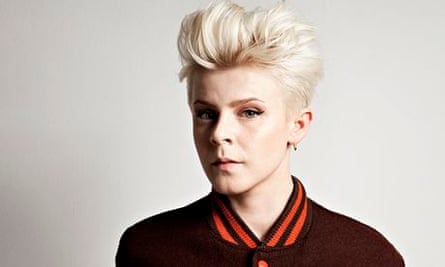
Instead, she has been focusing on collaborating. Not whizzing through a studio with just enough time to pick up the cheque but filling the gap between solo albums with an unexpected list of like minds, such as Neneh Cherry and lo-fi dance boffin Kindness. We're here today because she's made a dance mini-album, Do It Again, with Norwegian duo Röyksopp. The three had already worked together twice, on Röyksopp's The Girl And The Robot and Robyn's None Of Dem. But Do It Again is a more conceptual collaboration, the culmination of months spent flying from Stockholm to Bergen to work in Röyksopp's studio. Their new image is more considered and ostentatious, too: in press shots, Robyn looks like an ethereal White Walker, sandwiched by Castle Black recruits and transported to Blade Runner. She calls this the band she's always wanted to be in.
The result is a full-blooded, flamboyant club record that sticks a glittery shoulder pad up to typical Scandinavian reserve. It covers current shades of house: deep and tribal (Monument), jackin' and techno-laced (Sayit) and bouncing, whirring electro (on the title track) but collides Robyn's knack for a hook with Röyksopp's expansive and eccentric electronics. In other words, she makes them look cool and they give her sound a bit more weight. "With them, I could explore this four-to-the-floor world again in a way that felt interesting and came from a real place," Robyn says. "It wasn't as if I went back to the studio and tried to write another Dancing On My Own; it came out of us all just being in between records, touring a lot, going out, listening to music and discovering things together."
It's no wonder she wanted to hang out more with Röyksopp. One hour's flight away in Bergen, overlooking the vast fjord, Svein Berge cracks withering one-liners like they might weaken the sea wind, or at least distract from his loud floral jacket, while his lifelong friend Torbjørn Brundtland talks intensely in broad cosmic strokes and flannel sportswear. It makes it especially easy to approach the mini-album's flirtation with EDM, the genre that's become a byword for any vaguely commercial-sounding club track. Isn't it a little out of character for the one-time "kings of chillout"?
"But what is chillout?" says Berge to Brundtland.
"It's probably the more melodic, subdued sounding music, which has a break," Brundtland begins.
"And uses a trumpet and a scratch every now and then…"
"And is popular at outdoor cafes…"
"We made a lot of those songs, didn't we?" Berge drops the act for a second. "Obviously we're not idiots, and if certain forces are willing to make [the track successful], it will be, but we're not concerned with those things," he continues. "If anyone has ever been in doubt, one can just point them towards our [more experimental] album Senior. We made Junior and we were standing on the threshold. We could have continued that, and probably had a bigger following by doing so, but we chose not to because we're difficult and Norwegian."
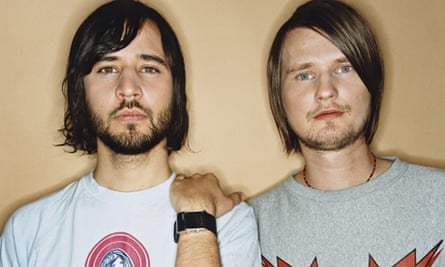
Difficult or not, Do It Again has the potential to inject some quality into the prevailing club music boom and bring both artists some much-deserved dollars, or acclaim, or both. It's also wilfully bombastic – yet another example of how both Röyksopp and Robyn bridge high and lowbrow. Take Monument, for example, the mini-album's 10-minute opening track. Robyn describes it as being "about death", "defining who you are" and "a physical sensation of an emotion," inspired by the Juliana Cerqueira Leite clay sculptures she saw at London's Saatchi Gallery. And that's before the three-minute drums'n'sax instrumental kicks in. "We decided, 'Oh, let's not be afraid of being pretentious this time, let's not censor ourselves, let's just see what happens'," she explains.
For Röyksopp, it's a first indication of their next album, which they recorded at the same time and will be coming out later this year. Robyn, though, has barely started thinking about a new solo album yet. "Right now all I want to do is go touring when I feel like it, spend time thinking about life, have a glass of wine once in a while, and a dance," she says, setting down her fork. "That's all I want to do."
Has she finally become the pop star she wants to be, then? She ponders the question as we leave the restaurant and she lights a cigarette. "I don't know if I actually want to be a pop star," Robyn says finally. "It's more about trying to figure it out, or exploring things, than trying to create a perfect picture."
Do It Again is out in the UK now. Robyn & Röyksopp play Latitude festival, Southwold, 19 Jul
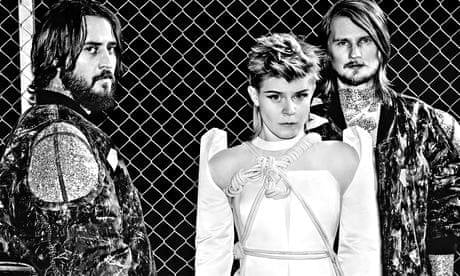




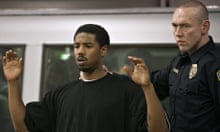
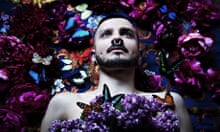
Comments (…)
Sign in or create your Guardian account to join the discussion